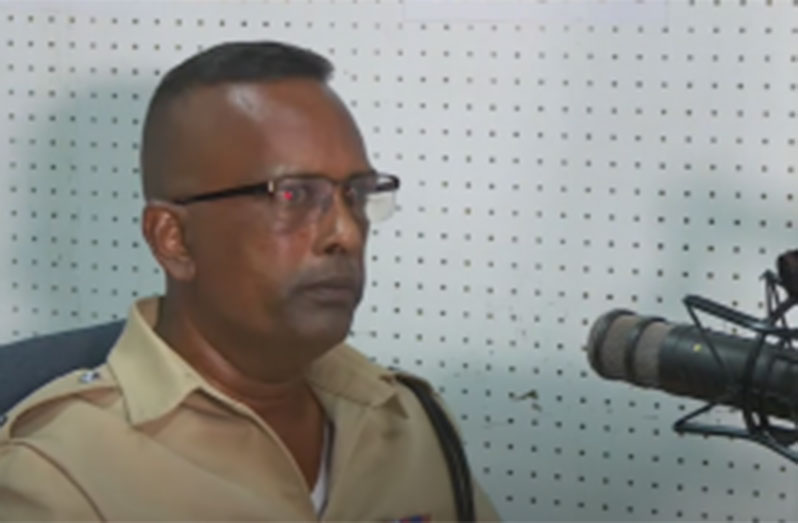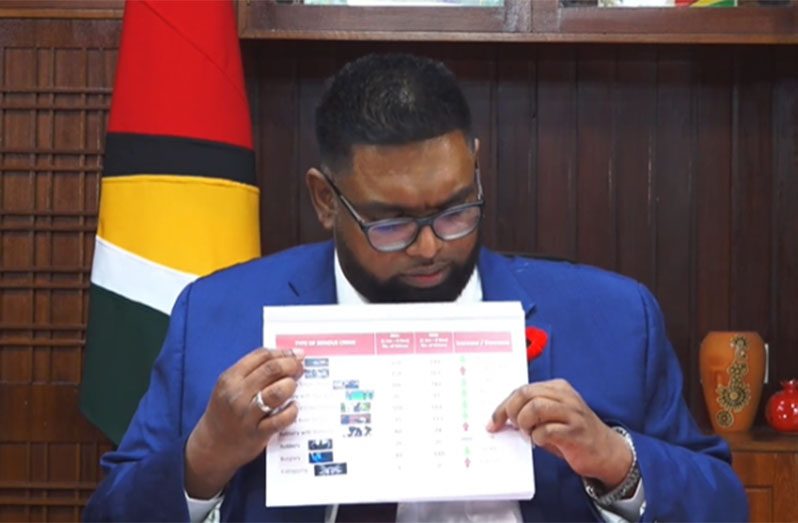SEXUAL violence cases brought to the High Courts have long been significantly higher than other cases heard during the criminal law terms.
This has not escaped the attention of Guyana’s head of state who expressed concern during a national address, on Monday last, as he compared crime data over the years for trends of growth and decline.
“If you look at rape, we had a 55 per cent increase [for 2021]. This is an issue we have to get tough on. This is one of the areas that we have to see tremendous improvement”, President Irfaan Ali said.
Last year, the Caribbean Court of Justice (CCJ) handed down a significant judgement on a child rape sentencing appeal in the matter of Pompey v Director of Public Prosecutions of Guyana (DPP).
In that decision, the President and Justices of the CCJ noted that in 2019 there were 648 indictable sexual violence cases from Guyana set down for trial in the Magisterial District of Demerara alone.
A deeper analysis of the data by the CCJ, which was provided by Guyana’s DPP office, showed that sexual violence cases constituted 54 per cent of the total number of criminal cases in Demerara for the years 2014 to 2019.
In the Berbice Magisterial District, 38 per cent of all criminal cases between 2014 and 2019 were sexual offences.
Meanwhile, for the Essequibo Magisterial District, 56 per cent of all criminal cases for the years 2014 to 2019 were sexual offences.
In all three Magisterial Districts, sexual offences against minors, as a percentage of overall sexual offence cases at any given period, were significantly high.

“Sexual offences” is a broad category of sex-related crimes which include rape, sexual assault, statutory rape, and other crimes of a sexual nature. The Sexual Offences Act was enacted in Guyana in 2010 as model legislation for the rest of the Caribbean.
In his address on Monday, President Ali said the “clear-up rate” for rape cases remains weak. This was also true for robbery with violence. “[For] those two areas, we have to ensure we have higher clear-up rates,” the President urged, adding: “We are very dissatisfied with the clear-up rate in those areas.”
The ‘Clear-up Rate’ as defined by the President during his report on national crime statistics, is the rate at which matters under investigation by the law enforcement agency are brought to conclusion.
Recently, Divisional Commander of Region One (Barima-Waini), Superintendent Boodnarine Persaud, appeared on the police force’s weekly radio programme “Police and You” where he echoed the President’s sentiments on climbing sexual violence cases.
“We have a 240 per cent increase in rape in Region One,” the Divisional Commander confirmed. He reasoned that the high number of reported cases, including statutory rape, is largely in indigenous communities and that these reports are being made because of sensitization programmes done by the police themselves in these communities which has prompted more persons to report sexual violence.
Commander Persaud said there have been cases that were unsuccessful during the investigation because the survivors could not properly identify the perpetrator or provide any information leading to a conviction.
He said that over the last three years, there were three reported cases in 2019 for his region, 14 cases in 2020 and 48 cases in 2021. “It calls for sensitizing the communities,” he further added.
Since the implementation of sexual offences courts in the magisterial districts, there has been an increase in the conviction rate for sexual violence matters in Guyana.



.jpg)










